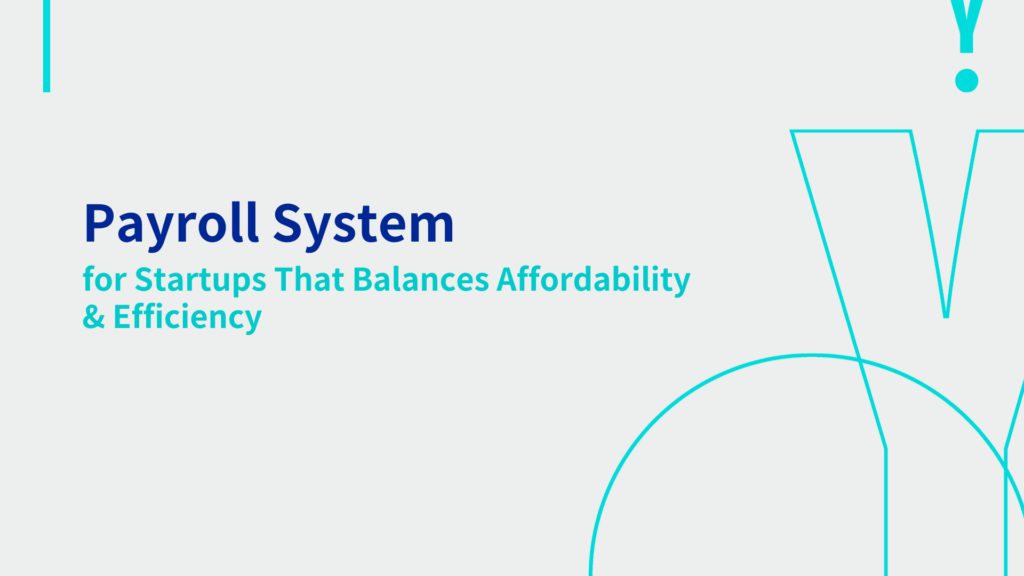
Managing payroll can be overwhelming for startups in Hong Kong. With limited resources and growing responsibilities, businesses need cost-effective solutions that ensure compliance, accuracy, and efficiency. Payroll errors can also lead to severe legal issues, affecting business credibility, financial stability, and employee satisfaction. Hence, startups must choose a payroll system that simplifies payroll tasks and minimizes risks.
A well-integrated payroll management system automates salary calculations, tax deductions, and employee benefits, reducing manual effort and human errors. It enhances transparency, keeps financial operations smooth, and prevents compliance-related issues.
However, choosing the right payroll management system is not always straightforward. With so many options available, thus, finding an affordable yet efficient system is challenging, especially for startups operating on tight budgets.
This comprehensive guide explores the essential features of payroll management systems, compares different pricing structures, and highlights best practices that startups can adopt. By the end of this blog, you’ll gain actionable insights to streamline payroll operations effectively and confidently.
So, let’s dive in!
- Why Startups Need A Payroll Management System?
- Saves Time And Reduces Errors
- Ensures Legal Compliance
- Enhances Employee Satisfaction
- Simplifies Taxation & Record-Keeping
- Key Features to Look for in A Payroll Management System
- Comparing Payroll Management Systems for Startups
- Challenges Startups Face in Payroll Management & How to Overcome Them
- Keeping Up with Changing Regulations
- Managing Payroll for A Growing Workforce
- Maintaining Data Security & Confidentiality
- Ensuring Payroll Accuracy And Avoiding Errors
- Balancing Cost & Efficiency
- Best Practices for Implementing A Payroll Management System
- End Note
Why Startups Need A Payroll Management System?
Handling payroll manually might seem manageable in the early stages, but as your startup grows, the process becomes increasingly complex. A payroll management system is not just a luxury—it’s a necessity.
Let’s explore why.
Saves Time And Reduces Errors
Manual payroll processing is incredibly time-consuming and prone to human errors. A single miscalculation can lead to salary disputes, compliance issues, or even legal penalties. Therefore, by automating payroll tasks, businesses can reduce errors and ensure accurate, timely payments.
Automated HR Hong Kong systems also generate reports quickly, making audits and financial planning more straightforward.
Ensures Legal Compliance
Hong Kong has strict labor laws that require accurate tax filings, timely MPF contributions, and adherence to wage regulations. Moreover, failing to comply with these regulations can result in hefty fines and reputational damage.
A payroll management system ensures that your startup remains compliant with local employment laws by automatically calculating tax deductions and generating the necessary compliance documents.
Enhances Employee Satisfaction
Employees expect their salaries to be accurate and paid on time.
Late or incorrect payments can lead to dissatisfaction and decreased morale. Payroll software ensures timely salary processing, direct bank transfers, and automated payslips, thus, eliminating unnecessary payroll-related stress for both employers and employees.
Simplifies Taxation & Record-Keeping
Startups must maintain accurate records for financial audits, tax submissions, and compliance checks. Automated payroll solutions generate tax reports, payslips, and compliance documents, making financial record-keeping seamless.
So, having a well-documented payroll history also helps during business expansion or funding rounds.
Key Features to Look for in A Payroll Management System
Choosing the right payroll management system depends on several factors. Here are the essential features that startups should prioritize when evaluating payroll solutions.
1. Automated Salary Calculations
A reliable payroll system should automatically compute salaries, overtime, bonuses, and deductions with high precision. It should factor in company-specific salary structures, statutory requirements, and benefits to avoid miscalculations.
2. Compliance Management
Your payroll software must align with Hong Kong’s labor laws, including MPF contributions, tax deductions, and employee benefits administration. Hence, this feature ensures your startup remains compliant with local regulations, preventing legal complications.
3. Employee Self-Service Portal
Self-service portals empower employees to access their payslips, tax records, and leave balances without involving HR personnel. Eventually, it reduces administrative workload and enhances transparency within the organization.
4. Integration with Accounting Software
Seamless integration with accounting tools simplifies financial operations. It minimizes also reconciliation errors and ensures payroll expenses are recorded correctly in your financial statements.
5. Scalability & Customization
As startups grow, their payroll requirements evolve. A flexible payroll management system should offer scalability without incurring high upgrade costs. On the other hand, customization options allow businesses to tailor payroll settings to their unique needs.
Comparing Payroll Management Systems for Startups
Not all HR systems offer the same functionality or cost structure. Understanding the differences can help startups make an informed decision.
Cloud-Based Vs. On-Premise Systems
- Cloud-Based Payroll Solutions: These systems are hosted online, offering easy access from anywhere with an internet connection. These HR software come with automatic updates as well as data backups, reducing IT maintenance efforts.
- On-Premise Payroll Solutions: These solutions are installed on company servers, offering greater control over data security. However, they require regular maintenance and may have higher initial costs.
Subscription-Based Vs. One-Time Payment Models
- Subscription-Based Payroll Software: These solutions require monthly or yearly payments, making them budget-friendly for startups. However, long-term costs may accumulate.
- One-Time Payment Models: Some payroll architecture allows a one-time purchase, reducing ongoing expenses. However, updates and additional features may require extra payments.
Local Vs. International Payroll Software
- Local Payroll Providers: These solutions cater specifically to Hong Kong businesses, ensuring compliance with local laws and tax regulations.
- International Payroll Platforms: These systems offer broader features, making them suitable for startups with global expansion plans. However, they may require additional configuration for local compliance.
Challenges Startups Face in Payroll Management & How to Overcome Them
Managing payroll can be a complex process, especially for startups with limited resources. Here are some common challenges startups face and effective strategies to address them.
Keeping Up with Changing Regulations
Hong Kong’s payroll laws and tax regulations frequently change. Startups may struggle to keep up with new compliance requirements, risking penalties.
Solution: Invest in a payroll system with automatic compliance updates and also seek legal consultation when necessary.
Managing Payroll for A Growing Workforce
As startups expand, handling payroll for a growing team becomes challenging. Calculating salaries, benefits, and tax deductions manually can be time-consuming.
Solution: Choose a scalable payroll solution that accommodates business growth without requiring a complete system overhaul.
Maintaining Data Security & Confidentiality
Payroll data contains sensitive employee information, thus, making security a top priority.
Solution: Opt for payroll software with robust security features such as encryption, multi-factor authentication, and secure cloud storage.
Ensuring Payroll Accuracy And Avoiding Errors
Payroll errors can cause financial losses and employee dissatisfaction. Mistakes in tax calculations or salary processing can lead to compliance issues.
Solution: Automate payroll processes, conduct regular audits, and ensure data validation to prevent costly errors.
Balancing Cost & Efficiency
Startups often work with limited budgets, making it difficult to invest in high-end payroll software.
Solution: Compare different pricing models and choose a system that balances affordability with essential features to maximize efficiency.
Best Practices for Implementing A Payroll Management System
Successfully integrating payroll software requires careful planning and execution. Here are some best practices for startups to follow.
- Assess Business Needs & Budget: Start by identifying your payroll requirements. Consider factors such as employee count, payroll frequency, compliance needs, and budget before selecting a system.
- Train Employees And HR Staff: Proper training ensures that employees and HR personnel can efficiently use the payroll system. Therefore, you may like to conduct workshops or provide detailed user guides to facilitate adoption.
- Regularly Update Payroll Data: Keep employee records updated, including salary adjustments, MPF contributions, and also tax information. Consequently, it ensures accurate payroll processing and prevents discrepancies.
- Conduct Periodic Payroll Audits: Regular payroll audits help identify discrepancies, ensuring compliance and financial transparency. They also help startups detect fraudulent activities early.
End Note
Investing in an efficient payroll management system is essential for startups in Hong Kong. It saves time, reduces errors, ensures compliance, and enhances employee satisfaction. Therefore, by selecting a cost-effective and scalable payroll solution, startups can streamline operations and focus on growth. Therefore, start exploring payroll solutions today with YOOV and build a more efficient business!
Connect with YOOV

WhatsApp:Click Here
Email:cs@yoov.com
Website:https://www.yoov.com/